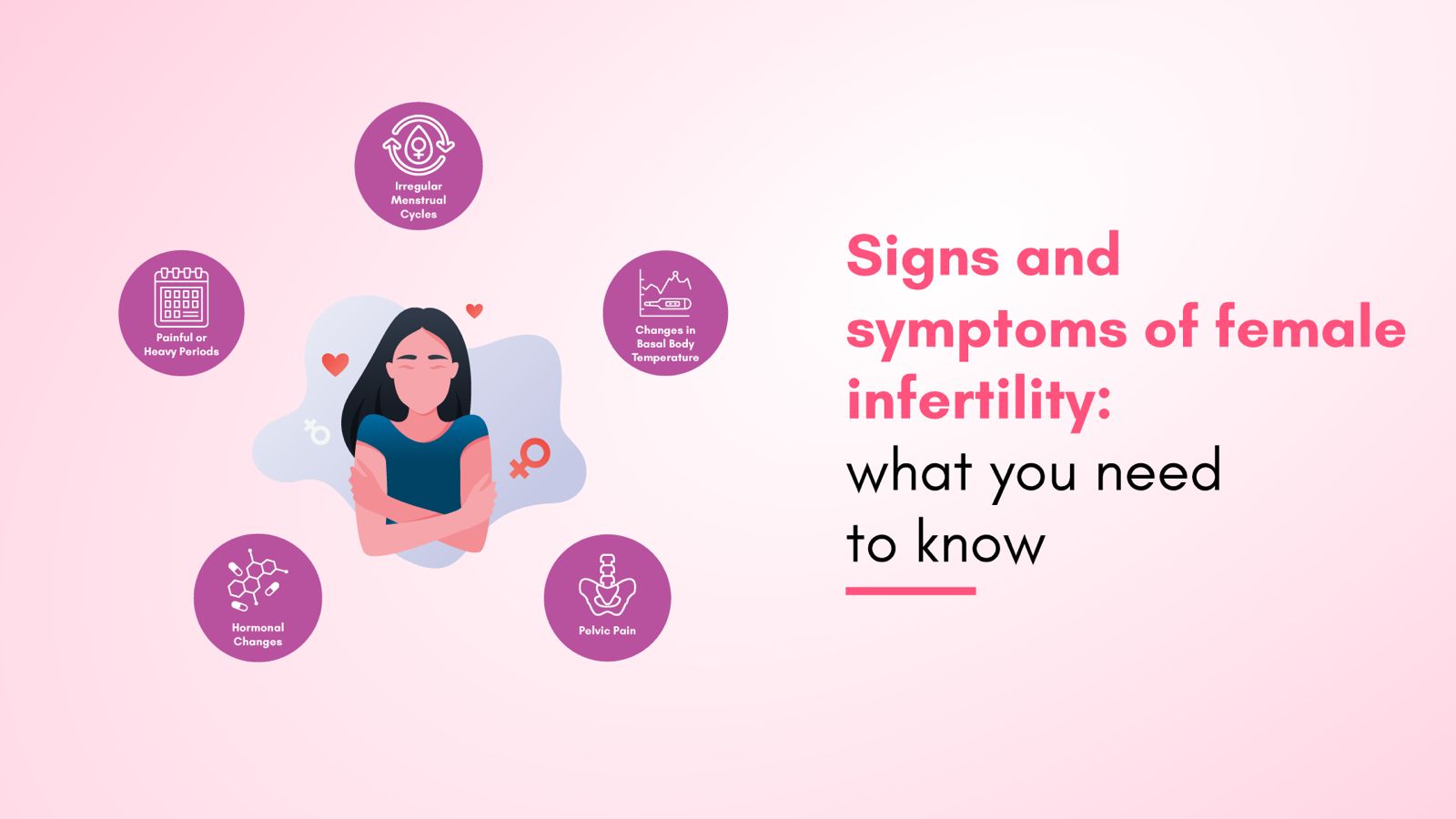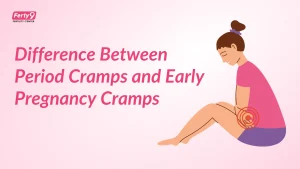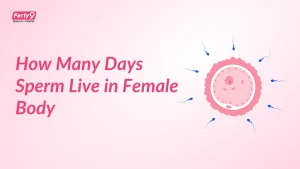What is Female Infertility?
Infertility is the inability to conceive even after a year of trying (six months if the woman is over 35). Female infertility can be caused by various conditions, including age, medical challenges, hormonal issues, and lifestyle or environmental factors. Women with many miscarriages are also considered to have infertility. Problems with egg production account for the majority of female infertility cases. Female infertility can bring psychological, physical, emotional, spiritual, and medical complications to the patient and their family.
What Causes Female Infertility?
The World Health Organization (WHO) performed an elaborate worldwide investigation to identify gender distribution and infertility causes. The results showed that female infertility was the cause in 30% of infertile couples; in 10% of couples, both male and female factors were found; and male factor infertility occurred in 30%, unexplained etiology in 10% and other causes in 5%. According to the same study, the most prevalent identified causes of female infertility are as follows:
| Causes for infertility | Percentage affected |
| Ovulatory disorder | 25 % |
| Endometriosis | 15% |
| Pelvic adhesion | 12% |
| Tubal blockage | 11% |
| Other tubal/uterine abnormalities | 11% |
| Hyperprolactinemia | 7% |
As a woman ages, her chances of infertility increase. Ovulatory abnormalities account for 25% of the recognized causes of female infertility. Oligo-ovulation, also known as anovulation, causes infertility since no oocytes are released monthly, and hence, there is no chance of fertilization
or pregnancy. The second most predominant cause of infertility is endometriosis, which is described as endometrial tissue seen outside the uterine cavity and affects 10% to 15% of reproductive-age women. Endometriosis is usually found in the pelvis, although it can extend across the abdomen. Female infertility is mostly caused by pelvic and tubal adhesions, as well as uterine and tubal abnormalities. Uterine causes of infertility have been associated with either space-occupying lesions or decreased endometrial receptivity, which results in infertility.
Common Signs and Symptoms of Female Infertility
Infertility is characterized by the prolonged inability to conceive. The following are the symptoms associated with female infertility:
Irregular Menstrual Cycles
On average, a menstrual cycle lasts 28-30 days. Inconsistent cycles or skipping a cycle prevent us from determining the period’s date. A menstrual cycle that lasts more than 35 days or less than 21 days may be abnormal, and this might be due to PCOS or hormonal disorders.
Suggested Read: Four Phases of Menstrual Cycle
Painful or Heavy Periods
Many women get cramps for a day or two during their periods. This is often manageable. However, some women may experience really severe cramps that interfere with their everyday activities. They may also experience higher-than-normal blood flow. This can’t be overlooked because it might be an indication of endometriosis. Endometriosis may lead to anatomic deformities, such as pelvic scarring, which can result in infertility.
Changes in Basal Body Temperature
Basal body temperature (BBT), measured throughout the course of a menstrual cycle, has been used to detect whether or not ovulation occurred. Shortly after ovulation, progesterone, a steroid hormone, becomes the primary factor for the rise in basal body temperature by 0.5 to 1 degree F. For decades, women have been using basal body temperature monitoring to plan the timing of intercourse during a fertile window. Changes in basal body temperature usually happen during every menstrual cycle, and the absence of this BBT can bring about fertility issues indicative of the absence of ovulation.
Pelvic Pain or Painful Intercourse
Ideally, sex should be painless. During intercourse, pain may be brought on by underlying medical disorders, such as:
- Fibroids
- Endometriosis
- Problems with the cervix and uterus
- Sexually transmitted diseases
- Pelvic inflammatory disease
Hormonal Changes
Several kinds of hormonal changes/imbalances affect fertility. These include Thyroid hormone (TH), Follicle-stimulating hormone (FSH), Progesterone and luteinizing hormone, and Prolactin – luteotropic hormone. Symptoms of hormone imbalance include:
- Acne and skin problems
- The development of facial hair
- Thinning hair on the scalp
- Nipple discharge
- Unexplained weight gain or weight loss
- Cold feet and hands
- Reduced sexual desire
Suggested Read: Role of Hormones in Fertility
Specific Conditions and Symptoms of Female Infertility
Polycystic Ovary Syndrome (PCOS)
Polycystic ovarian syndrome (PCOS) is a prevalent condition affecting women’s ovaries. PCOS has three main features:
- Irregular periods
- Excess androgen (Male hormones)
- Polycystic ovaries: your ovaries get larger and contain numerous fluid-filled sacs (follicles).
In PCOS, these sacs are frequently unable to release an egg, which blocks the process of ovulation. PCOS symptoms often appear in your late teens or early twenties.
Suggested Read: Earlier Detection of PCOS for Fertility Preservation
Endometriosis
Endometriosis is a condition in which tissue resembling the uterine lining develops outside the uterus. It can cause significant pelvic discomfort and make it difficult to become pregnant. Some people experience discomfort during intercourse or when using the restroom. Endometriosis has an impact on bowel movement and/or urination, stomach bloating, nausea, exhaustion, and, in rare cases, depression, anxiety, and infertility.
Age-Related Infertility Signs in Women
Age is the most critical factor influencing a woman’s fertility. Her eggs age along with her, decreasing in quality and number. A woman in her early to mid-twenties has a 25-30% probability of becoming pregnant each month. Fertility normally begins to fall gradually in a woman’s early 30s, and it accelerates beyond the age of 35. By age 40, the chances of becoming pregnant are around 5%.
Suggested Read: The Impact Of Age On Fertility
Lifestyle Factors and Infertility
Lifestyle factors are modifiable habits and lifestyle choices that can have a significant impact on general health and well-being, including fertility. Lifestyle factors, such as
- Nutrition
- Exercise
- Weight
- Psychological stress
- Environmental and occupational exposures
- Smoking and drug usage
- Alcohol and caffeine consumption
The above factors can have a negative impact on fertility. Women can alter their lifestyle patterns to improve their reproductive health.
Suggested Read:
Boosting Naturally Male fertility with Diet, Lifestyle Changes
Lifestyle Options to support female infertility treatment
When to Consult a Specialist?
It is important to consult a fertility specialist if you encounter the following conditions:
- You are 35 years of age or older
- You have no period, irregular periods, or heavy bleeding
- You’ve had many miscarriages
- You have been trying to conceive for more than a year
- You have a chronic medical condition
- You have a known reproductive issue
Treatment Options at Ferty 9
At Ferty9 Fertility Center, our mission is to provide best-in-class assisted fertility therapies while emphasizing safety, transparency, and compassionate care. Ferty9 promises best-in-class success rates with our dedicated team of specialists, advanced technologies, and evidence-based practices. Advanced techniques such as Intrauterine insemination (IUI), In Vitro Fertilization (IVF), Intracytoplasmic Sperm Injection (ICSI), and Preimplantation Genetic Testing (PGT) are carried out successfully at Ferty9 Fertility Center for fertility issues.
Conclusion
In recent years, infertility concerns among women have increased dramatically owing to a variety of circumstances. Thanks to advancements in the medical world, advanced treatments like Assisted Reproductive Technologies (ART) assist couples in fulfilling their dream of having a baby. Since 2013, Ferty9 Fertility Center has excelled in infertility treatments and has been equipped with recent technologies to ensure best-in-class success rates and serve as a hope for happiness for thousands of families.




























